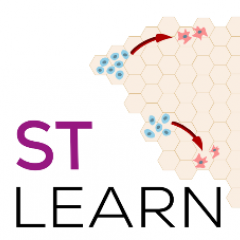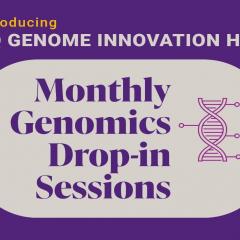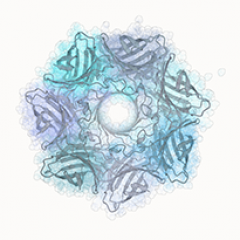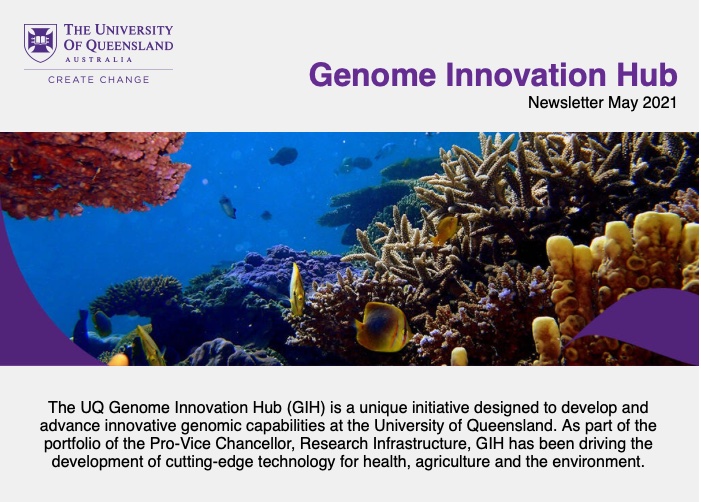
Second edition 2021 - Directors note

Dear Colleagues,
Welcome to the second edition of the GIH newsletter for 2021.
In this issue we highlight some of our new developments, project updates and news. We also shine a spotlight on some of our collaborators and one of our partner facilities.
The next edition of this newsletter will be distributed in August 2021.
CAGE transcriptome analysis is now available at UQ!
CAGE (cap analysis gene expression) is a highly sensitive and accurate quantitative transcriptome analysis which utilizes a cap structure on 5’ end of RNA. This feature enables high-throughput identification of transcription start sites and ability to infer promoters and transcription factor binding motifs.
The GIH team has established the availability of CAGE for researchers through the development of an optimized, cost -efficient in-house protocol, benchmarked against a commercially available ‘gold standard’ kit.
Our protocol delivers high quality results at a ~1/3 of the reagent cost and with 25% less hands-on time when compared to the commercial kit.
The full protocol is available through our GIH website.
Read the full protocol here >>
New scalable multi-omics genome platform
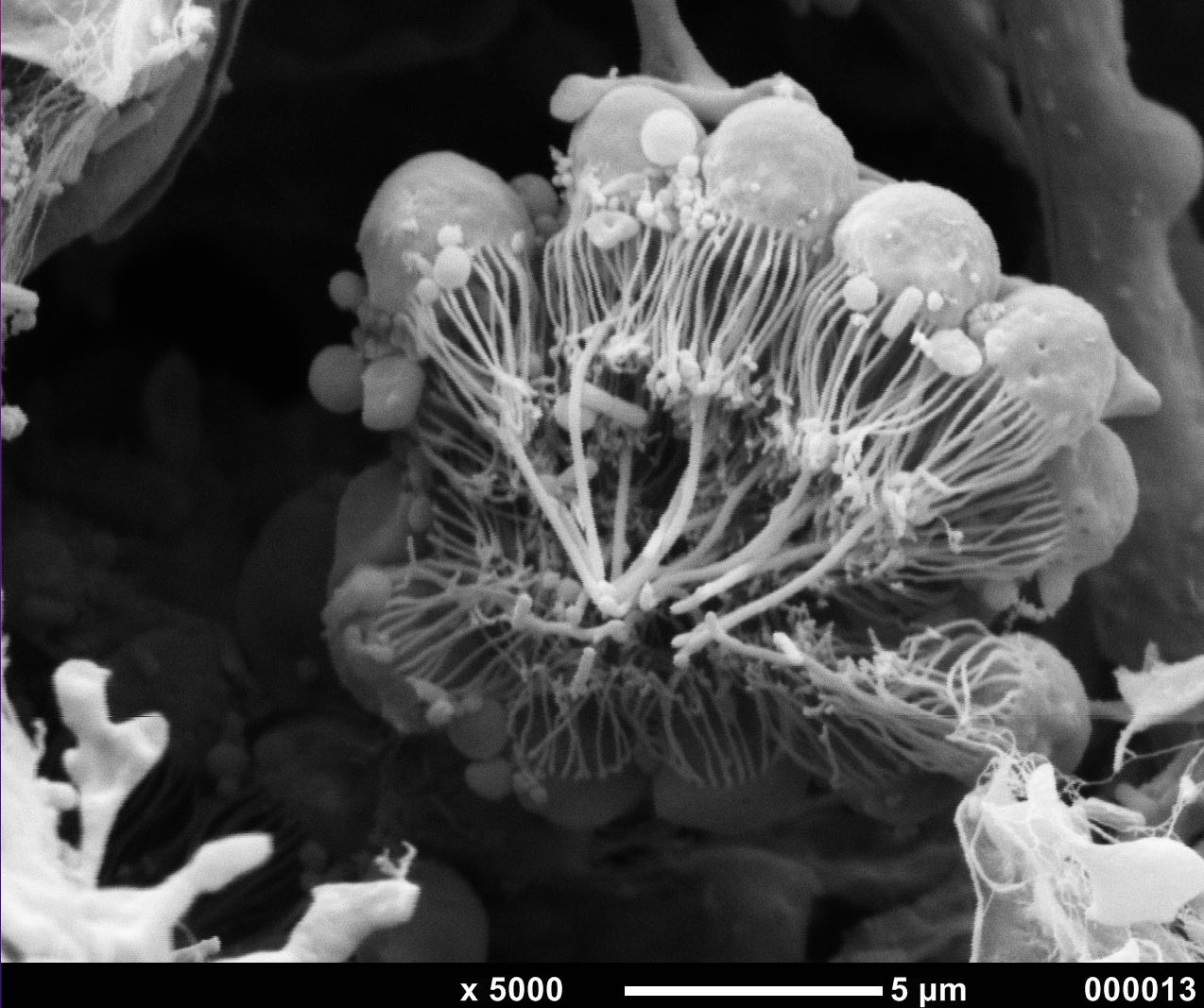
Building upon our success with launching the interactive microbial genome data browser, TraDIS-vault, a 2020 GIH collaborative project, is the development of a new scalable genome browser and interactive repository of multi-omics data sets.
This 2021 GIH collaborative project involves a collaboration with Professors Sandie and Bernard Degnan from UQ's Degnan Marine Genomics labs at the School of Biological Sciences (SBS), QCIF Bioinformatics and Australian BioCommons. The clever design of this Apollo-based browser will enable researchers to manage, search, visualise, explore and share their transcriptomic, epi-genomics and proteomic data.
Initially populated with existing data from the Crown-of thorns starfish and the Sea sponge Amphimedon queenslandica, obtained by the Degnan research groups, the aim is for the platform to be expanded to view and interrogate multi-omics data from both marine and terrestrial species by different research groups at UQ. GIH is excited to be part of this great project and see the future potential of this browser in enhancing collaborations with the broader utilisation of data sets amongst researchers.
Fellowship awarded for research into brain evolution

GIH is thrilled that one of our collaborative researchers, Dr Laura Fenlon, a NHMRC Leadership fellow from the School of Biomedical Sciences (SBMS), has been awarded a "Start Single Cell" Fellowship from 10x Genomics and Millennium Science.
10x Genomics is the leading technology for understanding biological mechanisms at the single cell level.
Laura's primary research focus is in understanding how the brain is able to change to make new connectivity pathways when traditional ones are disrupted, as well as understanding how these connectivity routes evolved during mammalian evolution.
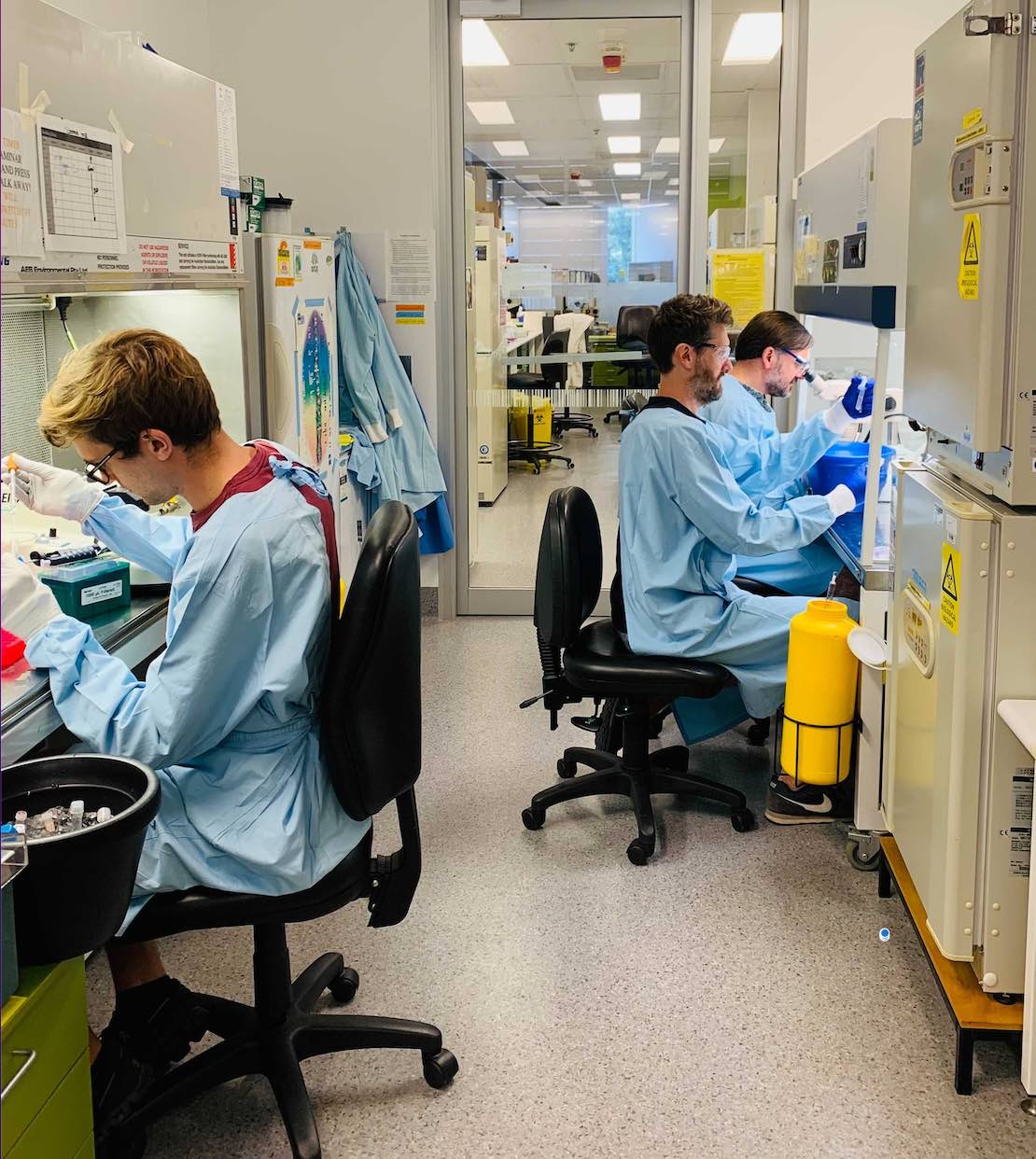
Laura is part of the GIH collaborative research project "RNA velocity quantification of single-cell transcriptomics" led by Dr Peter Kozulin with Dr Rodrigo Suarez and PhD candidate Evan Bailey (SBMS). Their research aim is to work with GIH to develop a pipeline for comparative single cell mRNA maturation analysis (RNA velocity) across species.
By using a unique model of mammalian neurodevelopment, the Fat-tailed Dunnart, an Australian marsupial, Laura and her colleagues hope that this new research tool will advance the study of the roles of developmental timing on complex trait formation.
Find out more about their project here >>
Day in the life: UQ Seq-core sequencing facility
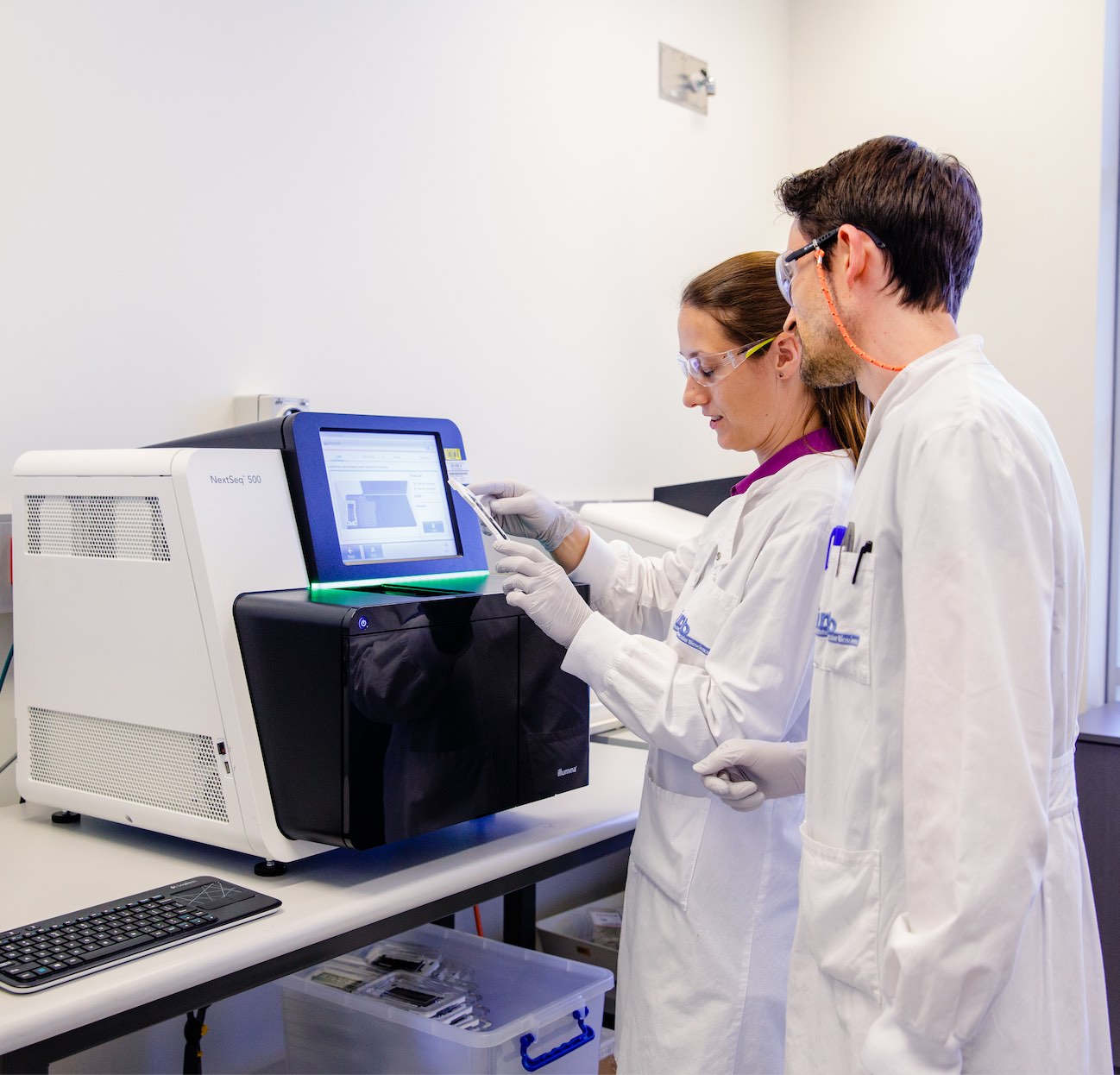
Located within the Institute for Molecular Biosciences (IMB), but open to all researchers, is the UQ Sequencing facility.
The team of Manager Ms Angelika Christ, Sequencing Specialist Dr Tim Bruxner and shared GIH team member and Sequencing Specialist Ms Stacey Andersen, provide sequencing services to UQ and the research community in the greater Brisbane region.
Services include short-read, long-read and single cell sequencing, as well as custom amplicon sequencing and exome capture.
A typical day of the team involves meeting researchers to tailor the sequencing aspects of their research project to their needs as well as running some cool sequencing techniques!
My typical day at Seq-core:
Tim...
I'm making RNA-seq libraries. I'm also shearing some DNA that will later be processed for HiFi libraries for long -read sequencing on the the PacBio Sequel II. Stacey QC'd a 10x Genomics Visium library pool and loaded it onto the sequencer. This afternoon she will run some single cell samples through the 10x Genomics Chromium controller. Angi will be finishing off some Chromium libraries, then preparing an exome capture for sequencing all the protein-encoding genes in a genome.
(Image above: Ms Stacey Andersen)
What do you like best about your job:
Stacey...
By working with GIH, our facility gets to do some really innovative exciting projects that can then be utilised by researchers throughout UQ and beyond.
Advice to others:
Angi...
Are you thinking about a sequencing project? Planning ahead will give you the best possible outcome in terms of depth of sequencing and the type of data generated, so feel free to get in touch! We are able to talk to you about sequencing options for your specific project.
Find out more about the UQ Sequencing Facility here >>
GIH collaborator spotlight
Each newsletter we shine the spotlight on a lead researcher within one of our GIH collaborative projects.
We caught up with Dr Mathew Jones Early Career Research Fellow within the Diamantina Institute, who with Prof Paul Clarke led the GIH collaborative project "Applying long-read sequencing technology to understand telomere repair and DNA replication".
What are your key research interests?
My research is broadly interested in understanding how cancer cells grow and divide with a particular focus on how human cells copy their DNA. DNA replication is the fundamental mechanism of genetic inheritance and an essential process for all cellular life. Understanding how DNA replication is controlled is important because copying errors during replication cause genetic mutations that drive tumour progression. Recent estimates suggest that two-thirds of the mutations present in human cancers are the product of errors during DNA replication. Many chemotherapies used in cancer treatment also work by blocking DNA replication. My team uses a wide range of techniques to study the spatial and temporal regulation of DNA replication by protein kinases including analogue-sensitive kinases technology, single molecule DNA fiber assays, multi-channel live-cell imaging and next-generation sequencing.
Can you tell us a bit about your project with GIH and how this relates to your research?
I am extremely excited to work with the team at GIH. We are developing long-read DNA sequencing assays that can assess the dynamic properties of individual replication forks. This will allow us to understand DNA replication in unprecedented detail. We will use the assay to understand how chemotherapies impact DNA replication differently in cancers that are sensitive or resistant to the treatment.
What is the goal of this project and how could it benefit other researchers?
We hope to use this information to predict the sensitivity of cancer cells to chemotherapies. This will ultimately ensure that cancer patients are matched with the most effective chemotherapy treatment.
Find out more about Mathew's GIH project >>
Latest publications and pre-prints
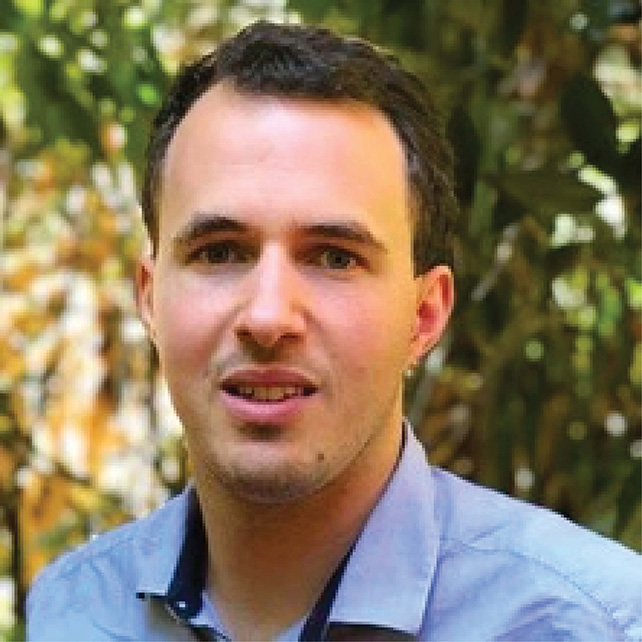
GIH is proud to support the research by our collaborators Dr Seth Cheetham (UQ Mater Research Institute), Dr Adam Ewing (UQ Mater Research Institute), Professor Geoffrey Faulkner (Queensland Brain Institute) and their research teams, in the GIH project "Simultaneous identification of RNA-chromatin interactions and transcriptomes in single cells".
Check out their recently released pre-print "Long-read cDNA sequencing identifies functional pseudogenes in the human transcriptome", where they used deep full-length PacBio cDNA sequencing of normal human tissues and cancer cell lines, to identify hundreds of novel transcribed pseudogenes.
Check out all our collaborative publications here >>
GIH developments and protocols
To find out about all our GIH developments from within our collaborative projects, click the links below.
- Single-cell and short read sequencing
- Imaging and spatial transcriptomics
- Proteomics
- Long read sequencing
- Bioinformatics and computational tools
News and media roundup
Read the latest mentions of GIH collaborative research in the news and media.
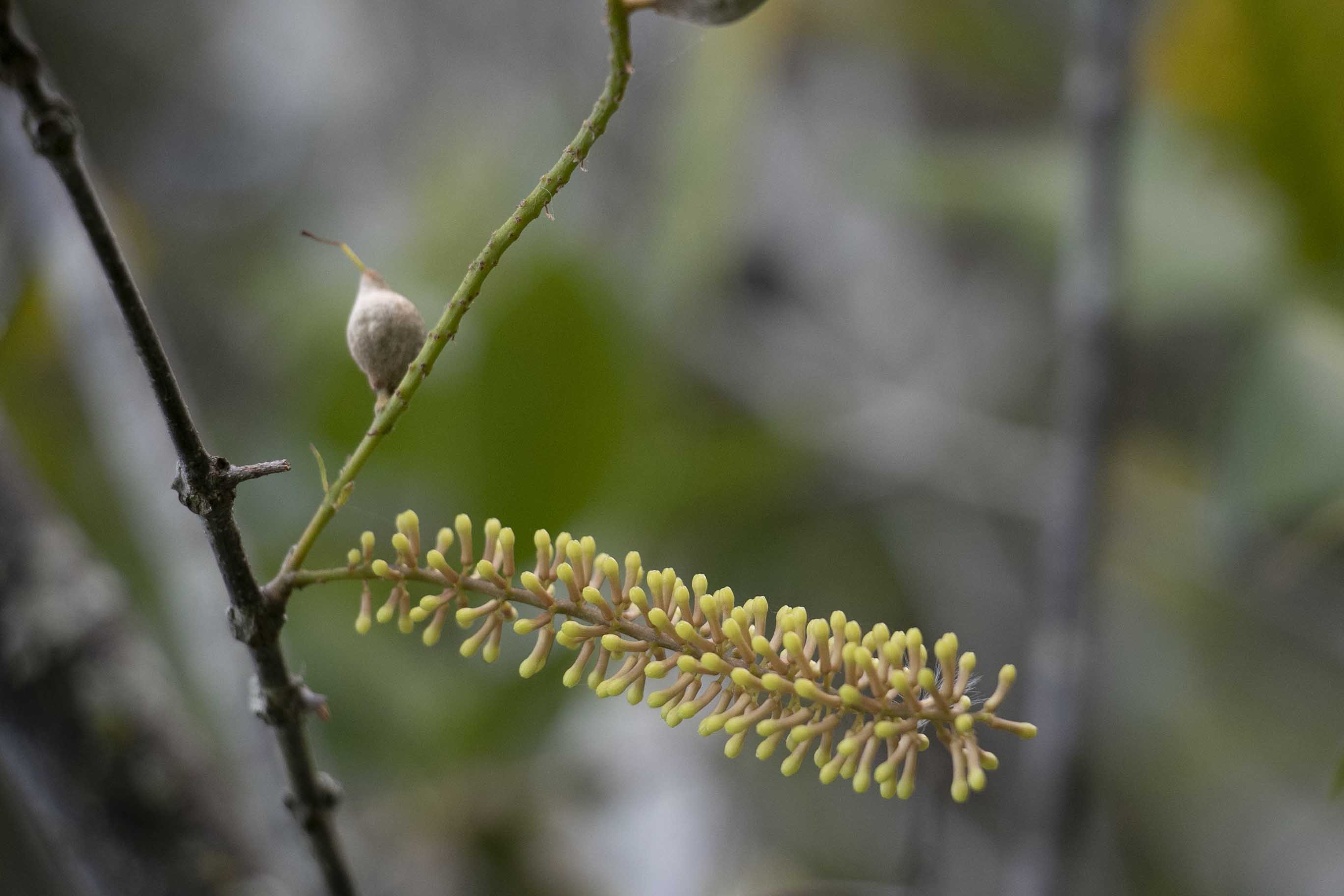
Our 2019 GIH Collaborative project "Assembly of complex genome (Macadamia) using single molecule sequencing" continues to gain substantial media coverage, with 11 media posts including:
Critically endangered macadamia species becomes a plant supermodel, QAAFI news, 25 February 2021
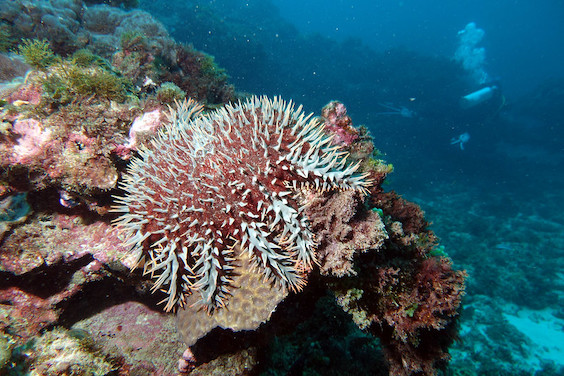
2021 GIH collaborative project "Developing a scalable genome browser and repository for complex multi-omic datasets", was mentioned in three news releases including:
Building better genome browsers, QCIF News, 20 April 2021
Top tweet
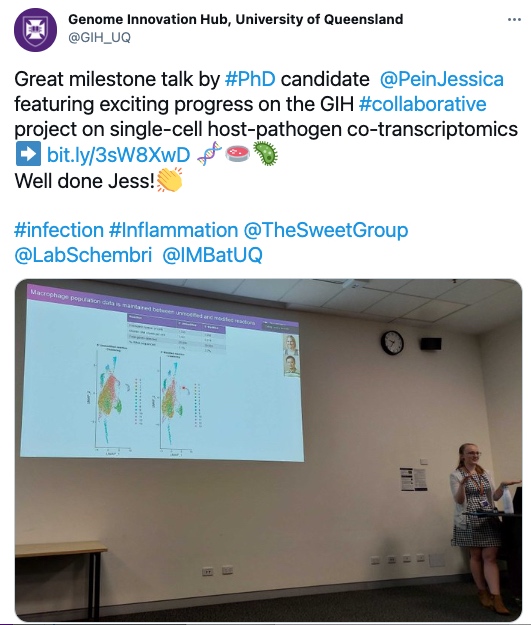
One of our recent top tweets was congratulating PhD candidate Jessica von Pein, from the research laboratory of Professor Matt Sweet (IMB) who presented some of the collaborative research from the GIH project "Understanding host-pathogen interactions through development of new co-transcriptomic single cell RNA sequencing technologies" as part of her milestone seminar.
Jess has been integral part of this exciting project which aims to establish a co-transcriptomic single cell RNA sequencing pipeline for simultaneously interrogating host and pathogen gene expression profiles.
Our goal is that this technology can be used to advance and expedite infection and immunity research programs across UQ.
Read more about the GIH collaborative project >>
Genomic-focussed Hacky Hours
Do you need assistance with genomic sequencing questions related to downstream computational tools?
Are you struggling with bioinformatic or statistical analysis questions related to your genomic research data?
Would you like some advice in regards to sample preparation for short, long or single-cell sequencing?
Hacky Hour is coordinated by the RCC and QCIF and is where researchers who would like assistance with their research IT can come along and ask questions or just work on whatever they are working on, in the company of other researchers who are into computing. Hacky hour is held every Tuesday, but twice a month GIH joins forces to provide specialist support for genomic-focussed technical questions!
Where: Due to the ongoing COVID-19 situation, Hacky Hour will be held via Zoom video conference until further notice. For Zoom meeting details or any questions, please email hackyhourUQ@gmail.com.
Note: during the genomic-focussed Hacky Hours, all researchers are welcome to attend and ask for help with all the usual research-related technical issues to do with: high performance computing, cloud computing, virtual machines, data storage, data security, data cleanup, automated workflows, data pipelines, virtual desktops, Python, R, Linux, Software and data carpentry, Machine learning and Research data management (RDM).
For updates, follow Hacky Hour UQ on Twitter (@HackyHourStLuc) or check the blog.
Seminars, Workshops and Interest groups
Queensland Genomic Technology Innovation Group.
Seminars are every third Tuesday of each month at 2pm.
https://groups.google.com/forum/#!forum/qgti/join
UQ library training courses
The UQ library offers classes (workshops) in software, research skills, and publishing and research management. Classes are added often, so check the list on the website regularly https://web.library.uq.edu.au/library-services/training
QCIF training courses and workshops
QCIF (the Queensland Cyber Infrastructure Foundation) runs a number of training workshops throughout the year available to staff and students from six Queensland Universities including the University of Queensland. These include categories such as Bioinformatics Analysis, Data Processing and Statistics, Data sharing and reproducibility, Machine Learning, Programming / Software Carpentry, Surveys and Data Management, Visualisation and research communication. See the website for further information https://www.qcif.edu.au/training/training-courses/
Monday Microscopy and Image Analysis Clinic
Zoom in to get help with your microscopy and image analysis questions from the Drs Nick (Nick Condon & Nick Hamilton). Everyone welcome!
Time: 10-11am every Monday
Join from PC, Mac, Linux, iOS or Android: https://uqz.zoom.us/j/435466385
Or iPhone one-tap (Australia Toll): +61280152088,435466385# Meeting ID: 435 466 385
BioCommons training, workshops and webinars
The Australian BioCommons is an ambitious new digital infrastructure capability that is enhancing Australian research in its ability to understand the molecular basis of life across environmental, agricultural and biomedical science. For information on events and available resources, see the BioCommons webpage
https://www.biocommons.org.au/training
Nanopore Oceania (nanopore-oceania.slack.com)
Oceania-region based Slack channel to facilitate communication and support between researchers working with Oxford Nanopore-based sequencing, with a strong focus on bioinformatics.
Got news?
We'd love to know if you have found any of our GIH developments helpful for your own research, so drop us a line.
In addition to our quarterly newsletter, GIH news is also posted on our website here and on our Twitter feed here.
Newsletter subscribe. Read all our latest news Visit GIH on Twitter
Copyright © 2012 The University of Queensland
ABN 63 942 912 684 | Privacy policy
Authorised by: Director, Genome Innovation Hub
Maintained by: b.purdue@uq.edu.au

